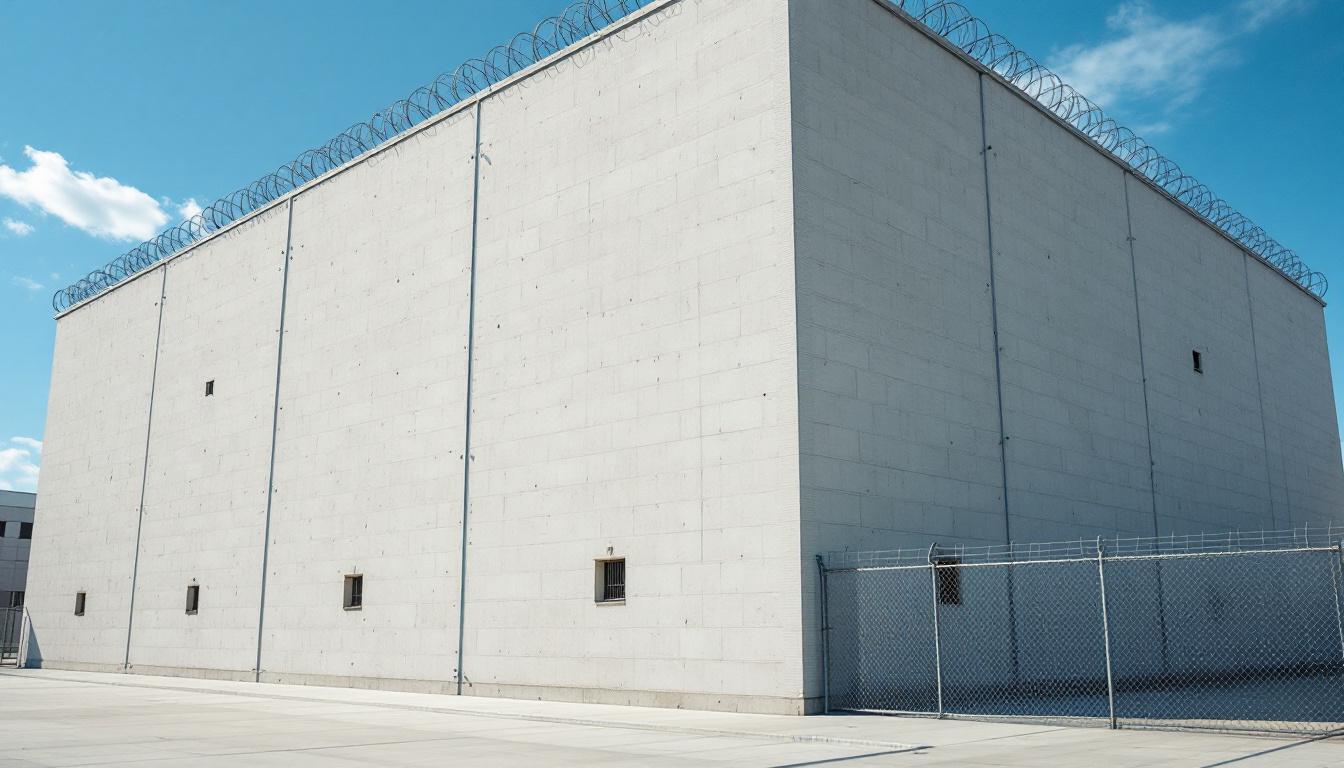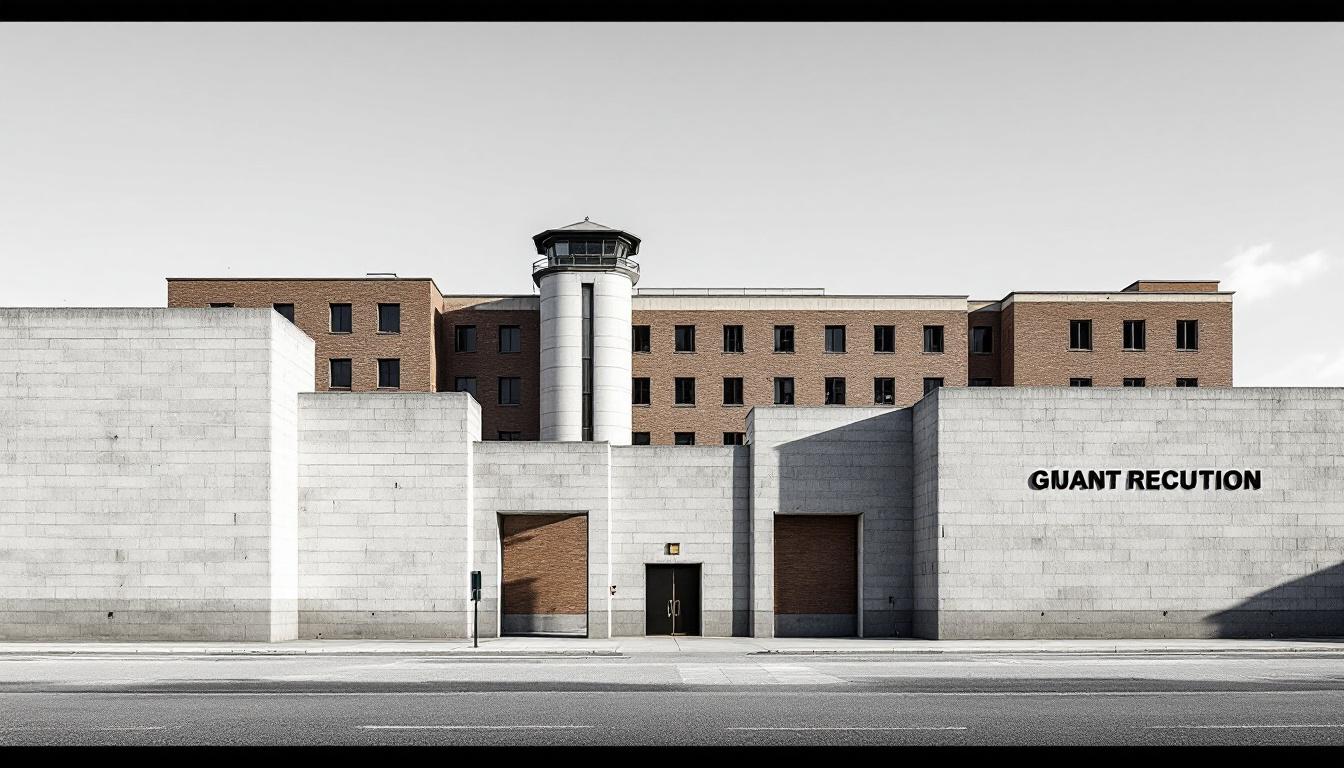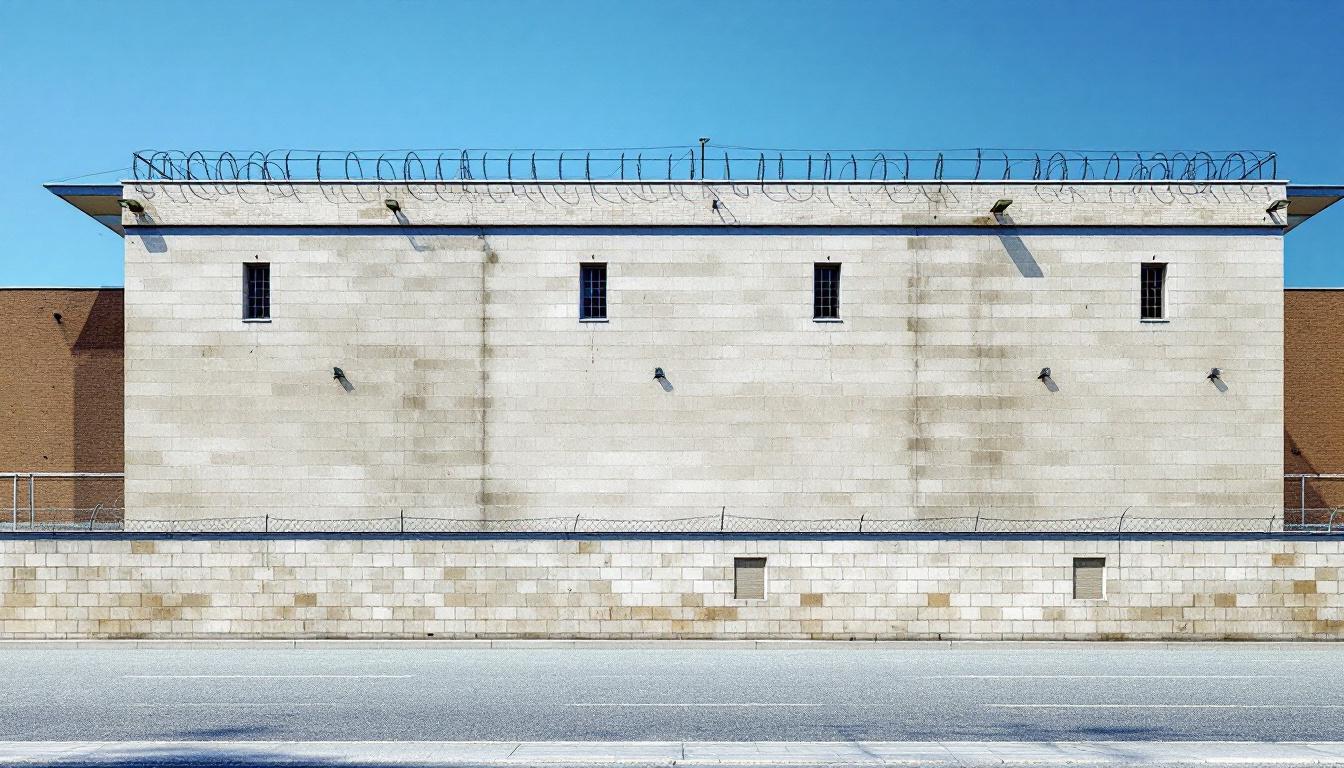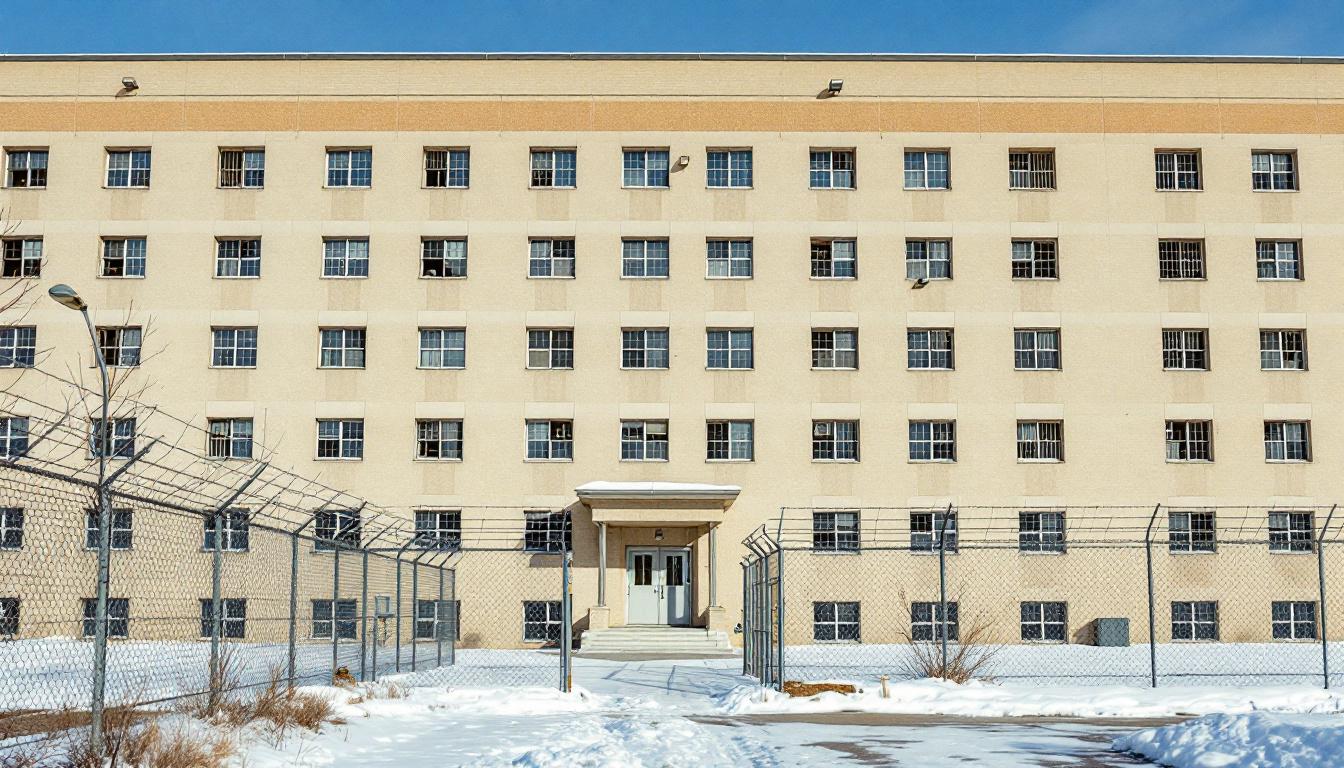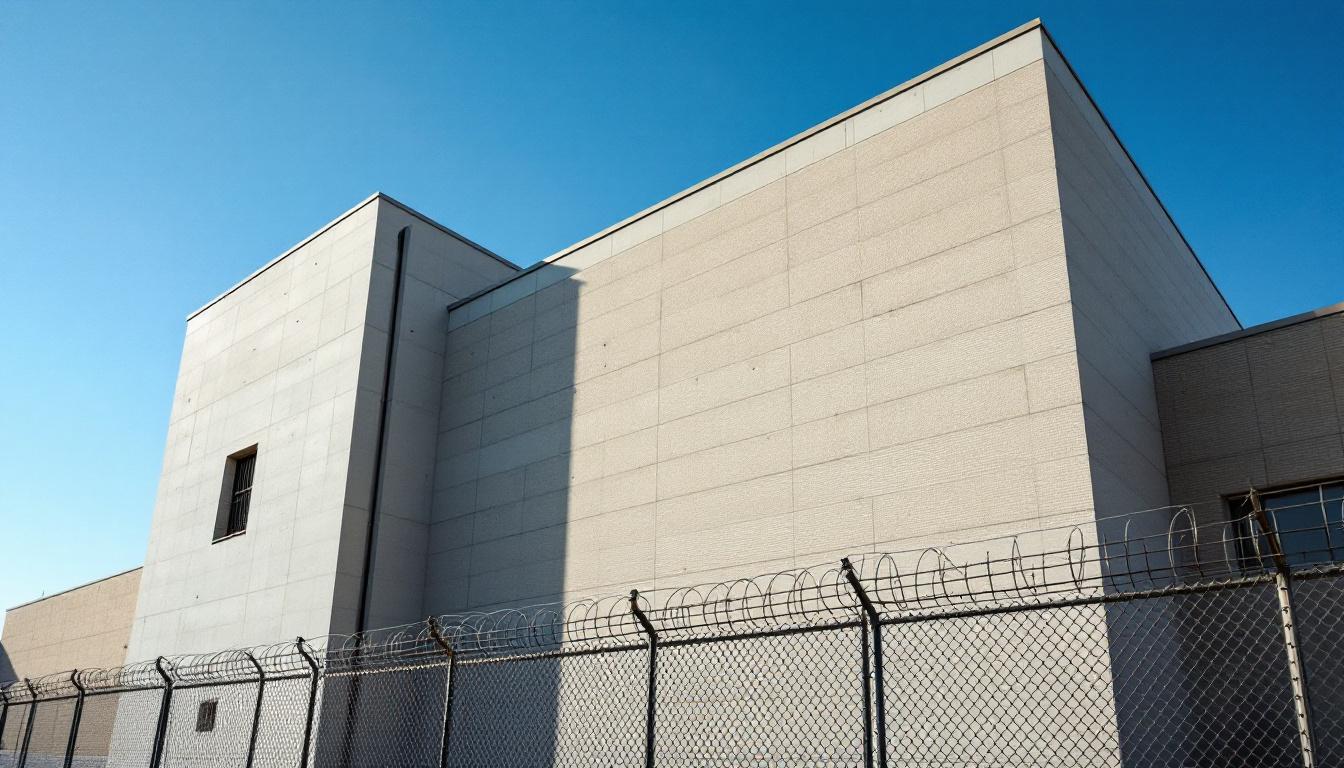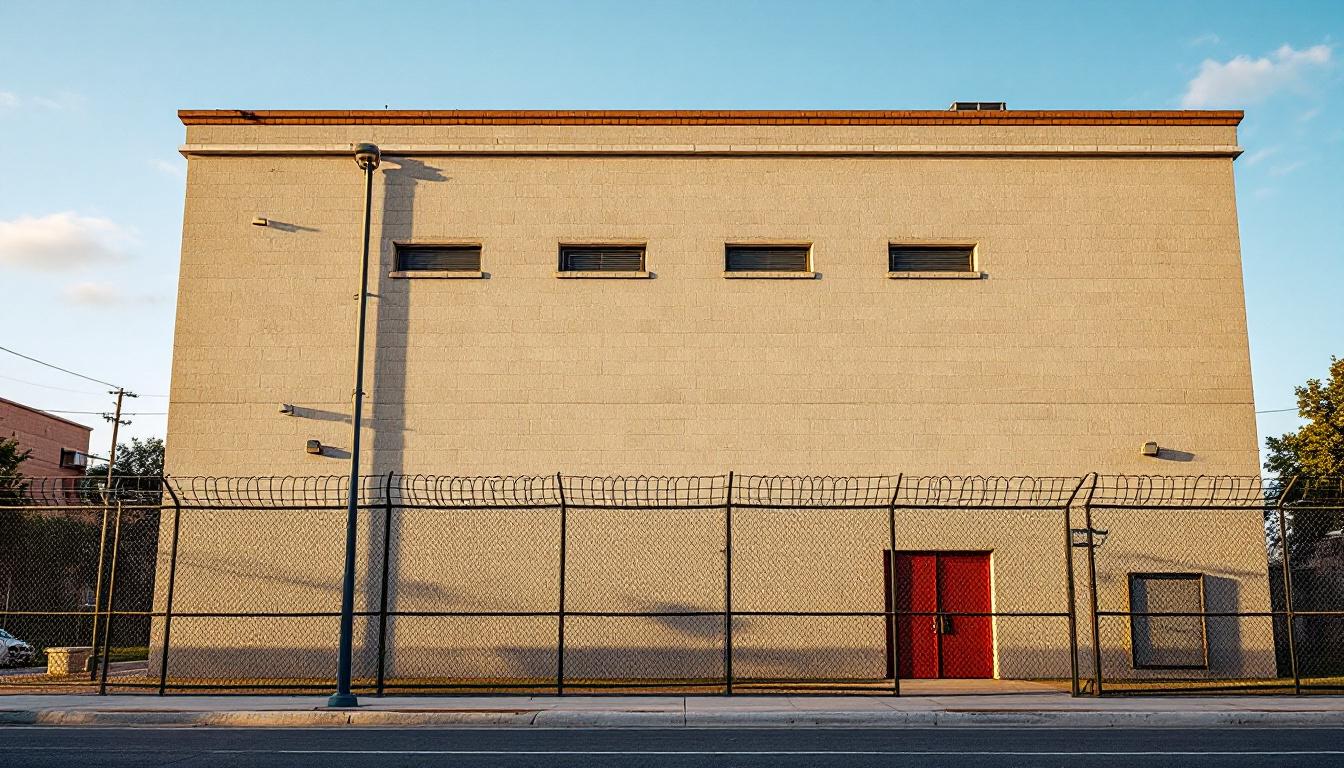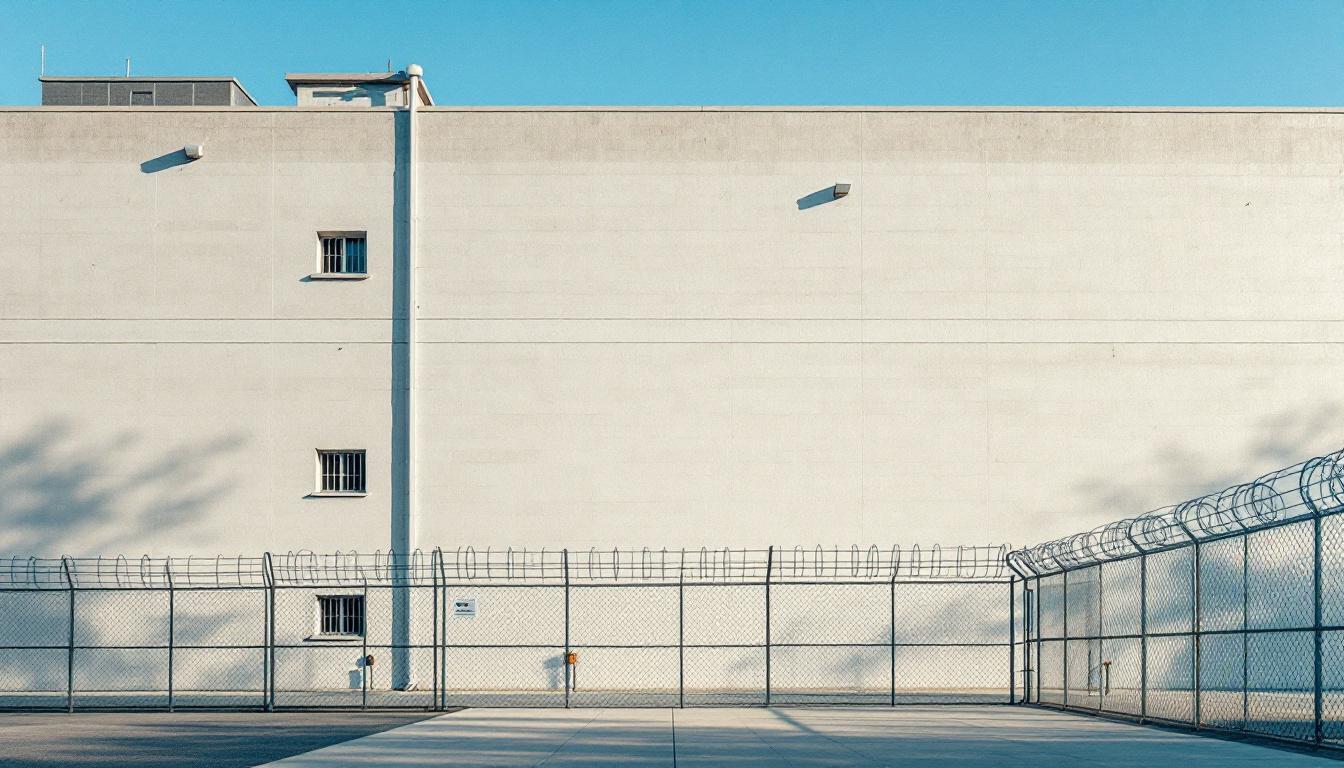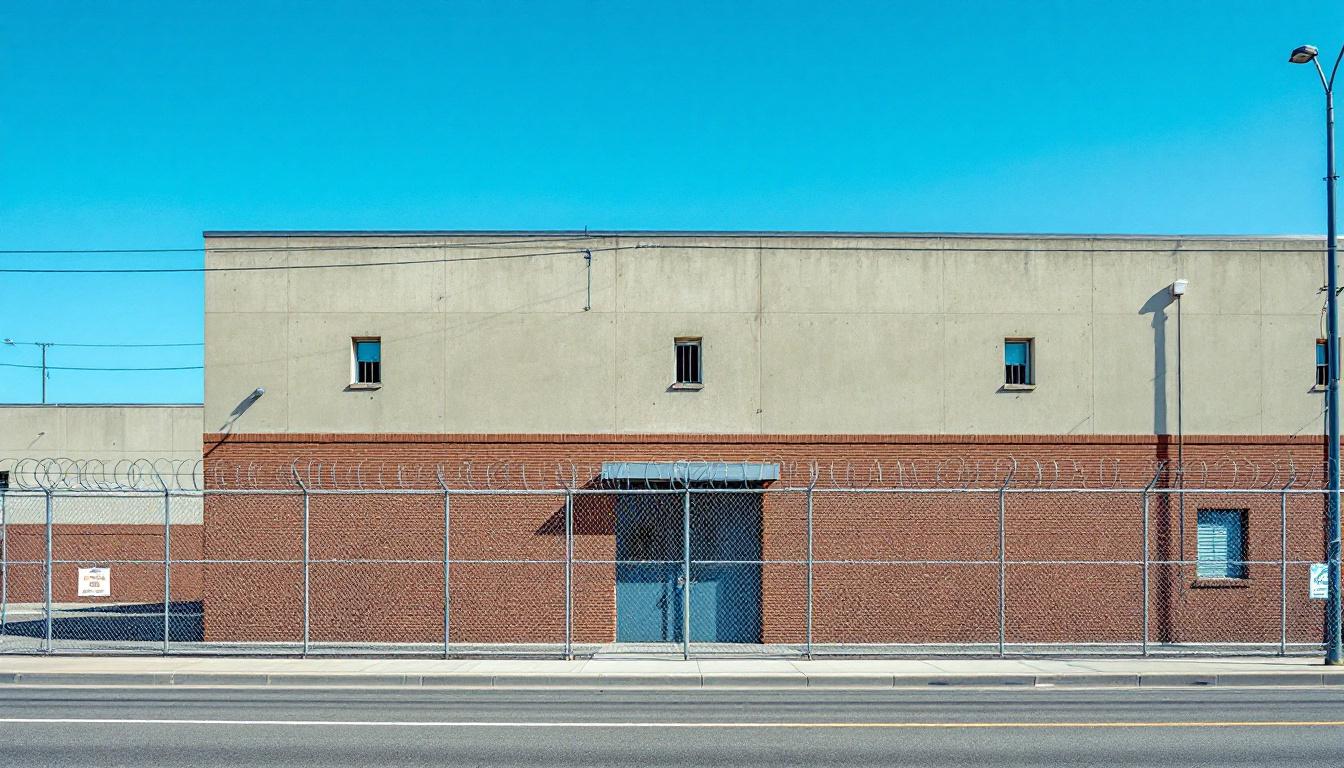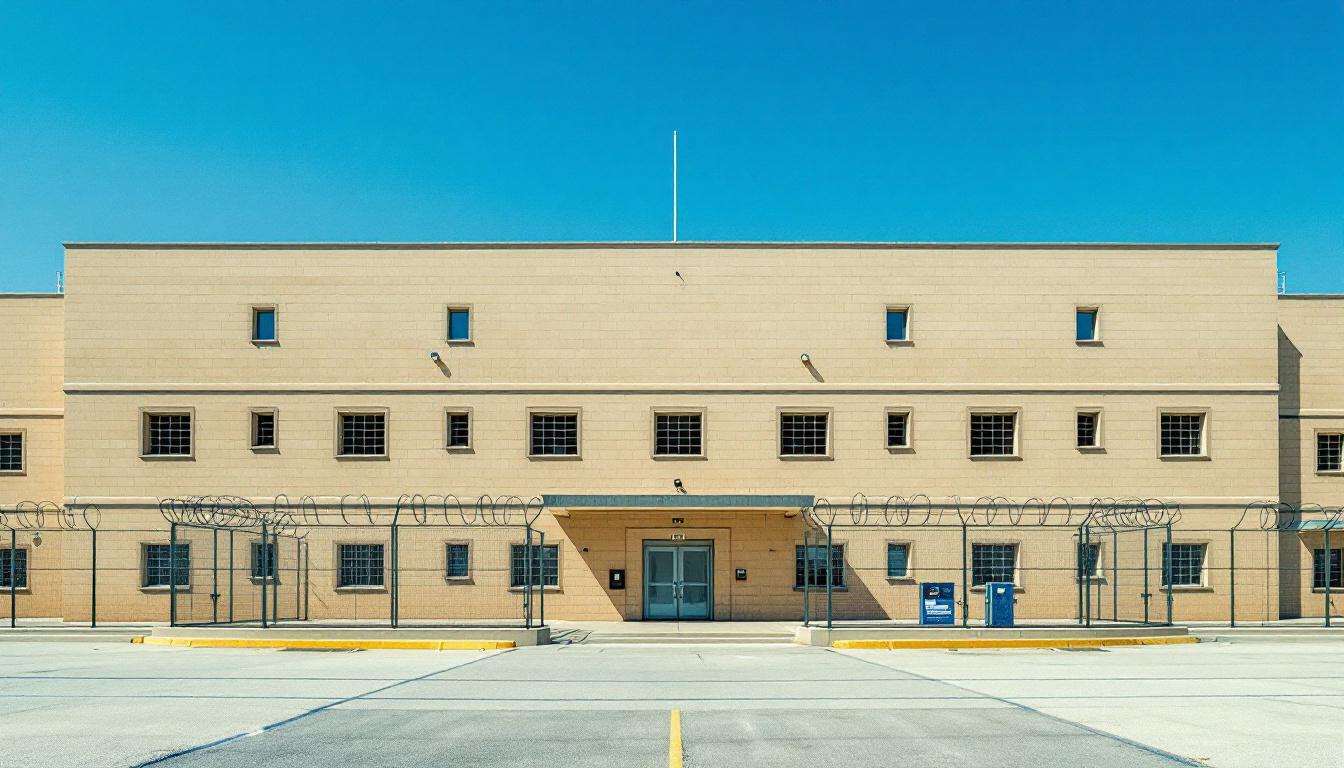
Quick Navigation
How to contact an inmate at Deschutes County Adult Jail
This comprehensive guide will walk you through how to connect with an inmate at Deschutes County Adult Jail. Follow the steps below to find an inmate and send letters and photos:
- Search for the inmate using our search tool below
- Create your account or log in to Penmate
- Write your message (up to 6,000 characters)
- Send instantly - inmates receive printed copies daily
Find an Inmate
Search for an inmate to start communicating today
Tip: You can search by first name, last name, or inmate ID number
To contact a person at Deschutes County Adult Jail start by searching for the person on the official facility website. Perform a search by following these steps:
- Step 1: Enter their first name and last name into the search form and click "Search"
- Step 2: Locate their inmate record
- Step 3: Write down their Inmate ID and any housing information provided
Important! Be sure to enter the person's full name. Nicknames should not be used.
How to Send Messages to Inmates

You can use your phone or computer to send emails, letters, and photos to an inmate. Messages are sent electronically to inmate tablets or kiosks at the facility. If you would like to send a message, start by searching for an inmate at Deschutes County Adult Jail.
Sending Photos and Postcards

A great way to send love and support to a loved one at Deschutes County Adult Jail is to send photos and postcards. It only takes a few minutes to send photos from your phone and it makes a huge difference. You can also mail postcards with words of support and inspiration, or design your own postcard for special moments like birthdays and holidays.
Important! Be sure not to send any explicit photos or they may not be approved by the facility. You can also use a photo printing app like Penmate to make sure your photos are printed at the correct size (4x6 or 3x5) and are mailed according to the rules and regulations of Deschutes County Adult Jail.
Frequently asked questions about Deschutes County Adult Jail
-
How long does it take to deliver a message?
If you're sending an email message your letter is usually delivered within 24-48 hours. For messages sent via mail you should expect delivery within 3-7 days. All messages will need be approved by Deschutes County Adult Jail.
-
How much does it cost to send a message to Deschutes County Adult Jail?
You can send a message free using your phone or mail a message via USPS for the price of a $0.60 stamp and envelope. You can also purchase credits or e-stamps from services starting at $1.99.
-
What services can I use to contact an inmate at Deschutes County Adult Jail?
Penmate
You can use Penmate to send letters and photos to an inmate from your phone. It's an easy way to stay in touch during your loved one's incarceration. Use the inmate locator to find an inmate's location and contact information, then you can send messages within a few minutes.
Securus messaging
Securus may be another option for communicating with an inmate at Deschutes County Adult Jail. You can create a friends and family account and purchase credits to send messages. All messages will be reviewed and must be approved by the facility.
JPay
Some county jails and state prisons may support sending messages with JPay. You must register an account with the system, find your loved one, and purchase stamps to send messages. For some locations you can also attach photos.
Smart Jail Mail
You may also check if Smart Jail Mail is available at Deschutes County Adult Jail. Smart Jail Mail is operated by Smart Communications and has contracted with some state and county jails. After purchasing credits, your messages and photos are sent to the facility, printed out, and then handed out to your loved one.
-
What is the mailing address of Deschutes County Adult Jail?
Mailing address:
Deschutes County Adult Jail
63333 US-20
Bend, OR 97701
Phone: (541) 388-6662Business hours:
- Monday: 8:00 AM – 5:00 PM
- Tuesday: 8:00 AM – 5:00 PM
- Wednesday: 8:00 AM – 5:00 PM
- Thursday: 8:00 AM – 5:00 PM
- Friday: 8:00 AM – 5:00 PM
- Saturday: Closed
- Sunday: Closed
-
What are the visiting hours at Deschutes County Adult Jail?
Visiting hours at Deschutes County Adult Jail vary by housing unit and security level. Generally, visits are scheduled on weekends and holidays, with some facilities offering weekday visits. Contact the facility directly at (541) 388-6662 or check their website for the current visiting schedule. Visits typically last 30-60 minutes and must be scheduled in advance.
-
What items are prohibited when sending mail to Deschutes County Adult Jail?
Prohibited items typically include: cash, personal checks, stamps, stickers, glitter, glue, tape, staples, paperclips, polaroid photos, musical or blank greeting cards, hardcover books, magazines with staples, and any items containing metal or electronics. Only send letters on plain white paper with blue or black ink. Photos must be printed on regular photo paper (no Polaroids). Always check with Deschutes County Adult Jail for their specific mail policies.
-
How do I send money to an inmate at Deschutes County Adult Jail?
You can send money to an inmate at Deschutes County Adult Jail through several methods: 1) Online using JPay, Access Corrections, or the facility's approved vendor, 2) Money orders mailed directly to the facility with the inmate's name and ID number, 3) Kiosks located in the facility lobby, or 4) Over the phone using a credit or debit card. Fees vary by method, typically ranging from $2.95 to $11.95 per transaction.
-
Can I schedule a video visit with an inmate at Deschutes County Adult Jail?
Many facilities now offer video visitation as an alternative to in-person visits. At Deschutes County Adult Jail, video visits may be available through services like Penmate, Securus Video Connect, GTL, or ICSolutions. Video visits typically cost $10-20 for 20-30 minutes and must be scheduled in advance. You'll need a computer or smartphone with a camera and reliable internet connection. Contact the facility for their specific video visitation policies and approved vendors.
-
What identification do I need to visit an inmate at Deschutes County Adult Jail?
All visitors must present valid government-issued photo identification such as a driver's license, state ID, passport, or military ID. Minors must be accompanied by a parent or legal guardian who can provide the minor's birth certificate. Some facilities require visitors to be on the inmate's approved visitation list, which may require a background check. Contact Deschutes County Adult Jail for specific ID requirements and visitor approval procedures.
-
How can I find out an inmate's release date?
To find an inmate's release date at Deschutes County Adult Jail, you can: 1) Use the online inmate search tool if available, 2) Call the facility's records department, 3) Contact the inmate's case manager or counselor, or 4) Have the inmate provide this information during a call or visit. For privacy reasons, some facilities only release this information to immediate family members.
Facility Overview
Official Website

About Deschutes County Adult Jail
Comprehensive rehabilitation programming and community reintegration services form the operational foundation at Deschutes County Jail, OR, where individuals typically engage with structured pathways designed to address underlying factors contributing to criminal behavior. Located in Bend, this correctional facility generally operates within Oregon's broader framework of evidence-based corrections, emphasizing skill development and behavioral modification through systematic approaches that may include educational opportunities, substance abuse counseling, and vocational training components.
The facility's process-oriented methodology often integrates with state correctional goals by focusing on measurable outcomes that support successful community transition. Individuals housed at this OR correctional facility typically participate in programming designed to develop practical life skills, address addiction issues, and strengthen family connections through structured communication opportunities. Mental health services and case management support generally complement these core offerings, creating comprehensive treatment pathways that align with Oregon's commitment to reducing recidivism through targeted intervention strategies.
Within Bend's high desert community context, the jail typically serves as a crucial component in the regional justice system, processing individuals from throughout Deschutes County while maintaining connections to local service providers and community organizations. The facility's approach to individuals services generally emphasizes preparation for release through graduated programming that may include work opportunities, educational advancement, and therapeutic interventions designed to support long-term behavioral change and successful reintegration into Central Oregon communities.
Programs & Services
A wide spectrum of developmental opportunities reflects the facility's commitment to addressing the diverse needs of individuals during their time in custody. The comprehensive approach recognizes that meaningful change occurs through multiple pathways, offering structured programming that spans educational advancement, practical skill development, and personal growth initiatives. These opportunities typically operate through coordinated service delivery designed to support both immediate needs and long-term success.
Educational advancement forms a cornerstone of available programming, with literacy programs serving individuals at various skill levels. GED preparation courses may offer structured pathways for those seeking to complete their high school education, while education services often include basic academic instruction and learning support. Furthermore, vocational programs typically provide hands-on training in practical trades and workplace skills, helping individuals develop marketable abilities that may enhance their employment prospects upon release.
Support services address the behavioral and emotional aspects of personal development through evidence-based approaches. Cognitive behavioral programs often focus on helping individuals identify and modify thought patterns that contribute to problematic behaviors. Stress management opportunities may include techniques for coping with challenging situations and developing emotional regulation skills. Distance learning options typically expand access to educational content, allowing individuals to pursue coursework and skill development through technology-assisted instruction when available.
Daily Life & Visitation
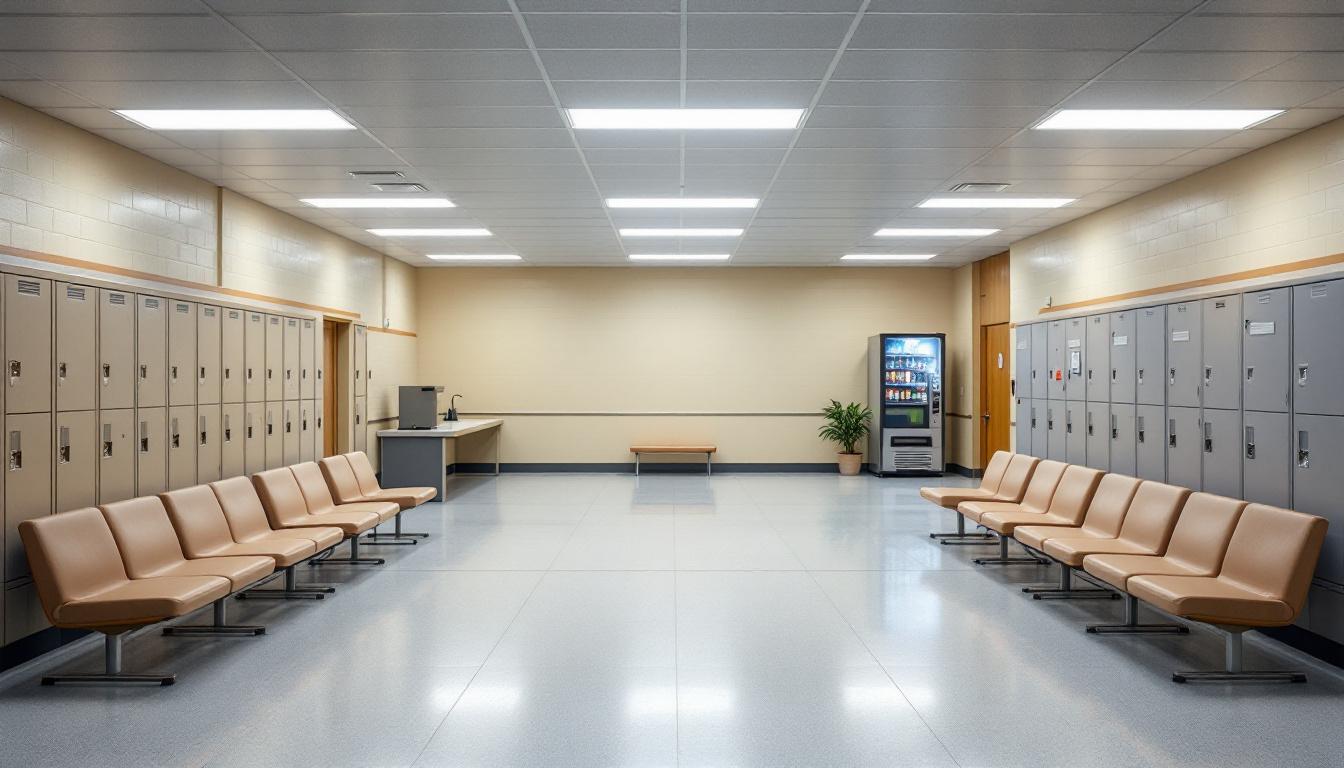
The sound of meal trays being distributed now marks one of several daily anchors that help individuals at Deschutes County Jail maintain a sense of routine. Wake-up typically occurs in the early morning hours, followed by head counts and the distribution of breakfast. Throughout the day, individuals regularly participate in scheduled activities that may include educational programming, substance abuse counseling, or work assignments within the facility. Security procedures and movement between areas generally follow established protocols that help maintain order while allowing for necessary daily activities.
Living accommodations at the facility typically consist of shared cells or dormitory-style housing units, depending on classification levels and available space. Individuals usually have access to basic personal items and may purchase additional supplies through the commissary system. Furthermore, meals are generally served at designated times in common areas or delivered to housing units, with menus that aim to meet basic nutritional requirements. Although space may be limited, most housing areas offer some recreational opportunities such as television viewing during approved hours and access to reading materials.
The facility often provides structured programming schedules that may include educational classes, life skills training, or vocational opportunities for eligible individuals. Work assignments typically involve facility maintenance, kitchen duties, or laundry services, which can offer structure and potentially reduce time served through good behavior credits. Although visitation policies may vary based on security levels and current regulations, individuals generally have opportunities to maintain contact with family members through scheduled visits, phone calls, and correspondence. These connections often serve as important sources of support during incarceration and can help individuals prepare for their eventual return to the community.
Ready to Connect?
Start communicating with your loved one today
Search for an Inmate
